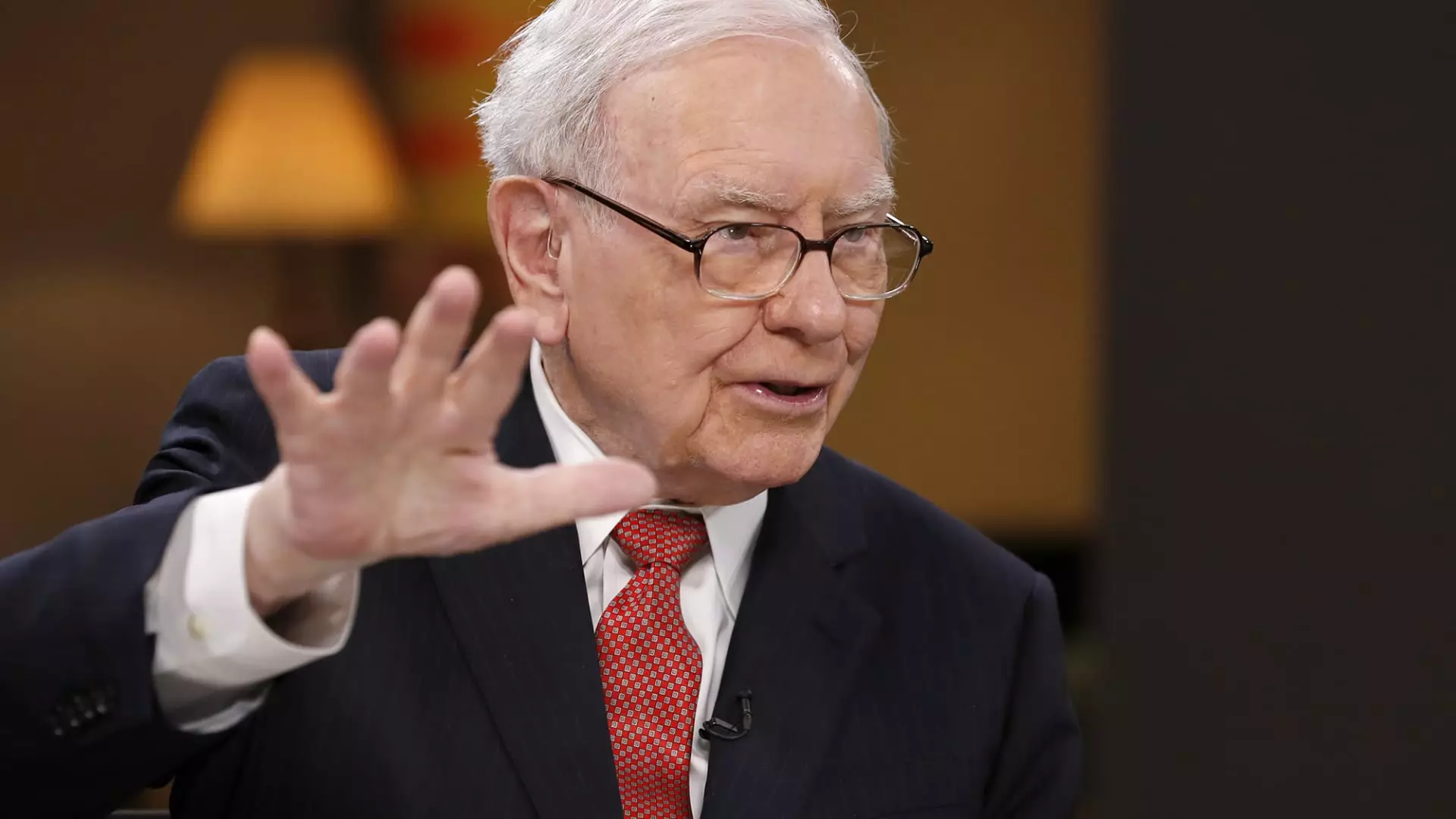Warren Buffett, affectionately known as the “Oracle of Omaha,” stands as one of the most iconic figures in investment history, commanding a personal fortune estimated at around $150 billion. However, beneath this immense wealth lies a philosophy that emphasizes responsibility over indulgence. Recently, Buffett has reinforced his stance against the creation of what he terms “dynastic” wealth, an approach that seeks to foster personal growth and mitigate societal issues arising from the inequitable distribution of wealth across generations.
Buffett’s commitment to philanthropy is evident as he has announced plans to appoint three independent trustees to oversee the distribution of his charitable resources—trustees he believes are capable of carrying out his philanthropic vision after his own children. This decision is emblematic of his desire to shift the focus away from hereditary wealth accumulation and towards the meaningful impact of charitable giving.
Buffett’s wariness towards generational wealth stems from his concerns about its potential negative implications. He has articulated that inherited wealth can stifle personal growth and complicate familial relationships. In a recent letter, Buffett expressed, “I’ve never wished to create a dynasty,” illuminating his belief that the management of extraordinary wealth should not merely fall to progeny without due consideration of their capabilities and values.
Buffett further argues that the unpredictable nature of future generations—encompassing their values, priorities, and competencies—poses significant challenges in managing and distributing inherited wealth. “Who can foresee the priorities, intelligence, and fidelity of successive generations?” he inquired, highlighting the uncertainty surrounding wealth’s impact on personal and social dynamics.
Philanthropic Commitments and Family Values
Alongside this bears the question of how wealth should be managed posthumously and whether it aligns with the ethical frameworks laid out by earlier generations. Buffett has been steadfast in his intention to donate 99% of his wealth accumulated through Berkshire Hathaway, revealing his belief that wealth should serve a greater societal purpose rather than languish in a trust fund. He has already pledged more than $1.1 billion in Berkshire Hathaway stock to four family foundations—an act he perceives as a means to not only uplift those in need but also impart his family’s values around financial responsibility and philanthropy.
Buffett’s confidence in his children highlights the balance he seeks to achieve between financial comfort and the wisdom to manage it wisely. He notes, after years of observation, that they have cultivated an understanding of altruism and management that respects both their financial acumen and a sense of social responsibility. Buffett’s late wife, Susan, instilled these values in their children, solidifying the generational importance of philanthropy over mere wealth accumulation.
In a recent development, Buffett has entrusted the future handling of his philanthropic legacy to designated trustees. While the identities of these trustees remain undisclosed, they are described as individuals who enjoy a familiarity with Buffett’s children and share mutual respect and trust amongst them. This move serves to ensure that his wealth is allocated thoughtfully, aligning with the philanthropic priorities that Buffett has outlined throughout his career.
Buffett understands that the assets he has accrued through Berkshire Hathaway—a company he has led since 1965—represent not only financial success but also a responsibility to the community. His approach suggests a conscious effort to craft a roadmap that prioritizes impactful charity over the potential pitfalls of inherited wealth.
As Warren Buffett embarks on this monumental phase of his philanthropic journey, he sets a precedent not only for billionaires but for society as a whole. His perspective on wealth is centered less on its accumulation and more on its ability to make a tangible difference. Through his actions and words, Buffett challenges the conventional narrative surrounding wealth and inheritance, offering a profound reminder that true legacy is often measured not by the size of one’s fortune, but by the impact one creates in the world. As he aptly puts it, the focus should always remain on fostering a future that values humanity over individual wealth.

